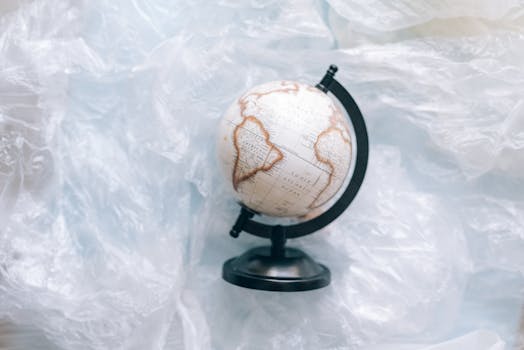
Cultural Shifts and Societal Trends Leading to 2025: Understanding the Future
Cultural shifts and societal trends are transforming the world at an unprecedented rate. As we approach 2025, it’s essential to understand the key changes that will shape our future. Cultural shifts and societal trends are redefining the way we live, work, and interact with each other. In this article, we’ll explore the significant cultural shifts and societal trends that will impact our lives in the next few years.
Section 1: Demographic Changes and Urbanization
The world’s population is undergoing significant demographic changes. By 2025, the global population is projected to reach 8.1 billion, with 60% of people living in urban areas. This urbanization trend will continue to drive economic growth, innovation, and cultural diversity. However, it also poses challenges such as increased competition for resources, housing shortages, and social inequality.
Another significant demographic change is the aging population. By 2025, the number of people aged 65 and older is expected to increase by 30%, putting pressure on healthcare systems, social security, and pension funds. This demographic shift will require governments and businesses to adapt and innovate to meet the needs of an aging population.
Section 2: Technological Advancements and Digital Transformation
Technological advancements are driving digital transformation across all aspects of life. By 2025, emerging technologies such as artificial intelligence, blockchain, and the Internet of Things (IoT) will become more prevalent. These technologies will revolutionize industries such as healthcare, finance, and education, making them more efficient, accessible, and personalized.
The rise of remote work and virtual communication will continue to shape the way we work and interact with each other. By 2025, an estimated 70% of the workforce will be working remotely at least one day a week, leading to increased flexibility, productivity, and work-life balance. However, it also raises concerns about social isolation, data security, and the blurring of boundaries between work and personal life.
Section 3: Sustainability and Environmental Awareness
Sustainability and environmental awareness are becoming increasingly important cultural shifts. By 2025, the world will need to reduce greenhouse gas emissions by 45% to limit global warming to 1.5°C above pre-industrial levels. This will require significant investments in renewable energy, sustainable infrastructure, and eco-friendly technologies.
Consumers are driving the demand for sustainable products and services, with 75% of millennials willing to pay more for environmentally friendly products. Businesses are responding by adopting sustainable practices, reducing waste, and promoting eco-friendly products. However, there is still a long way to go to achieve a circular economy and reduce the environmental impact of human activity.
Section 4: Social Justice and Equality
Social justice and equality are critical cultural shifts that will shape the future. By 2025, the world will need to address significant social and economic inequalities, including gender pay gaps, racial disparities, and access to education and healthcare. The #MeToo movement, Black Lives Matter, and LGBTQ+ rights are just a few examples of the social justice movements that are driving change.
Businesses are recognizing the importance of diversity, equity, and inclusion, with 80% of companies reporting that diversity and inclusion are essential to their success. However, there is still a long way to go to achieve true equality and address the systemic barriers that prevent marginalized communities from reaching their full potential.
Section 5: Conclusion and Future Outlook
In conclusion, the cultural shifts and societal trends leading to 2025 will have a profound impact on our lives. Demographic changes, technological advancements, sustainability, and social justice will require us to adapt, innovate, and work together to create a better future. As we look ahead, it’s essential to prioritize education, critical thinking, and empathy to navigate the complexities of the future.
By understanding these cultural shifts and societal trends, we can prepare ourselves for the challenges and opportunities that lie ahead. Whether you’re a business leader, policymaker, or individual, it’s essential to stay informed, be open to change, and work towards creating a more equitable, sustainable, and just future for all.





